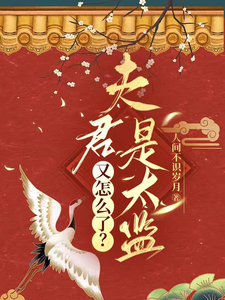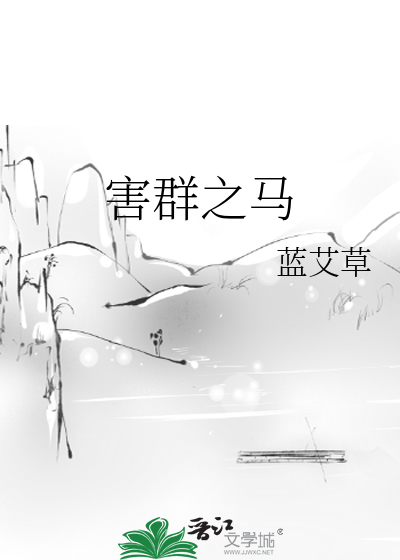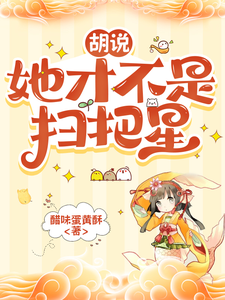Shen Miao verified her "travel permit" at the government office by the ferry dock, settled accounts with the boat captain, and had porters carry her two large wooden trunks of luggage into the cabin she had booked. After tipping them two copper coins, she finally sat down in the cabin and let out a relieved sigh.
Traveling long distances in ancient times was no easy feat. Her "travel permit"—essentially an ID card—had cost her a full string of cash, bribed through a lawyer to expedite its processing at the government office. Without it, commoners couldn’t travel. Whether at river crossings or city gates, officials would demand to see it. Failure to produce one meant jail time!
Setting aside the trivial expenses of stocking up on food, hiring carts and porters, even the boat ticket alone made Shen Miao wince. She had chosen an official grain transport vessel—safer, with fewer troublemakers aboard. Though pricier, safety was her priority as a lone traveler.
The fare from Jinling to Bianjing cost two hundred copper coins, and the journey would take over half a month. Opting for a private berth added another hundred coins, plus forty more for luggage storage.
Onboard meals and hygiene were another matter. Most travelers brought their own provisions, and Shen Miao followed suit, ignoring Granny Rong’s curses as she hurried to the market at dawn to buy ten days’ worth of flatbread, five days of wheat and rice, and a day’s ration of vegetables and meat. She even packed a small earthenware jar of oil, salt, soy sauce, and vinegar. But boiling water, reheating bread, or cooking porridge required borrowing the captain’s stove, adding fees for water and firewood… No wonder the ancients said, "A poor home makes for an expensive journey!"
At least she got her money’s worth. The hundred-coin cabin was spacious and bright, with a daily ration of hot water and a basket of charcoal. After dusting off the slightly moldy wooden bed and laying out her bedding, she rummaged through her camphorwood trunk for a plump eggplant and a packet of salt-cured pork belly, then soaked half a bowl of rice in warm water.
Tonight, she decided, would celebrate both her rebirth and the original owner’s liberation. She’d borrow a stove to cook minced pork and eggplant over rice!
The ship was a melting pot of characters. Donning a veil hat, she locked her cabin and navigated the narrow wooden stairs to the lower deck, passing crowded dormitories before reaching the stifling boiler room. Steam, smoke, and assorted odors mingled in the cramped space as passengers jostled for hot water.
"Piping hot water, three coins a ladle! Cool river water, one coin a ladle!" a crewman barked.
Jostled by the crowd, Shen Miao accidentally stepped on the pristine cloth shoe of a tall young man in front of her.
The youth, about fifteen or sixteen, wore a simple blue robe that suited his upright bearing like pine or cypress. Startled, he turned with a pained but strikingly handsome face. His spotless white socks now bore a glaring footprint.
Flustered, Shen Miao bowed. "My apologies, young master. The crowd pushed me—it was unintentional."
The boy glanced at her, then averted his eyes, waving a hand. "No harm done. I was lost in thought and didn’t notice. The fault is mine."
His graciousness made her smile. He flushed and hurried away.
After renting a two-burner clay stove (with a deposit), she spotted the scholar filling a pot of hot water before leaving.
Back in her cabin, Shen Miao rolled up her sleeves to cook. Worried about carbon monoxide from the smoky charcoal, she hauled the stove outside. Her deck housed the ship’s best cabins—eight private rooms, their doorways crowded with travelers cooking or servants bedding down.
Her solo presence drew stares. A young, shapely woman traveling alone, even dressed plainly as a married woman, was a rarity.
Unfazed, she fetched a cleaver from her luggage. When she spun it deftly in her hand, the prying eyes quickly retreated.
The cleaver was a recent purchase. As a chef, she believed a good knife was lifelong. Though Song Dynasty metallurgy couldn’t match modern standards, she’d scoured market stalls for this eighty-coin gem—the finest laminated steel blade available.
Her mind wandered, but her hands worked steadily. Squatting by the door, she laid a thin cutting board and swiftly diced the eggplant, steaming it in an earthen pot while rice cooked on the adjacent burner. Soon, the mingled aromas of grain and vegetables filled the air.
Granny Rong had backed down after the lawyer forced her to return Shen Miao’s dowry. When the old woman later sought revenge, Shen Miao had simply sharpened her cleaver in the courtyard, grinning as she noisily hacked meat. Bullies fear defiance—Granny Rong, convinced she’d gone mad, stayed locked indoors for a day.
Truthfully, Shen Miao just enjoyed honing blades. She believed tools had spirits; only by meticulously shaping an edge to her hand did a knife truly submit.
Of course, such whims required funds. This "barely passable" cleaver had strained her budget. But with it, she could julienne tofu into twenty translucent slices or fillet fish with ease. A skilled chef needed no arsenal—one good cleaver sufficed for chopping, slicing, smashing garlic, even self-defense.
Now, its edge flashed as she prepped her celebratory feast, the rhythmic thuds of blade against board a testament to her hard-won freedom.
During the Song Dynasty, eggplants were not yet called "eggplants" but rather "luosuo," and most were not elongated but round like eggs, with a pale yellow hue. Without the memories of her past life, Shen Miao would never have recognized them as eggplants when strolling through the market. After browsing a few more stalls, however, she noticed that some vendors also sold purple eggplants, though they were far fewer in number and much more expensive—high-ranking officials of the Song Dynasty wore purple robes, making the color a symbol of nobility, and even eggplants were not exempt from this association.
But for Shen Miao, food was meant to fill the stomach—what did looks matter? Unlike a kitchen knife, which counted as a "valuable fixed asset," she didn’t hesitate to buy the cheaper white eggplants.
While steaming the eggplants, she chopped some scallions and garlic, then mixed a sauce with oil, salt, and soy sauce. The Song Dynasty had no chili peppers, but its people loved spicy flavors—though what they called "spicy" back then would be better described as "pungent." Drawing from her past life’s memories, Shen Miao had painstakingly prepared a jar of classic Song-style spicy pickled vegetables before leaving home, using minced ginger, garlic, and leeks mashed into a paste with pepper, salt, and water. Now, she scooped out a small spoonful to mix into the sauce, using it in place of chili for a savory kick.
Her movements were swift and practiced. Soon, the steamed eggplants were set aside to cool while she poured a spoonful of oil into an earthen pot, heating it until fragrant before adding scallions. With a sizzle, she tossed in minced meat to stir-fry.
The aroma of meat and scallion-infused oil filled the air. Shen Miao didn’t skimp on oil—as she stir-fried the meat, she added the prepared sauce, followed by the steamed eggplant segments and minced garlic. A final sprinkle of scallions, and the dish was ready.
The stir-fried eggplant was done just as the rice in another earthen pot finished cooking. What she ate wasn’t the polished rice of later eras but cheaper millet and foxtail millet, lightly crushed with the base of a bowl before steaming to speed up the process.
She ladled the fragrant minced-meat eggplant, along with its rich sauce, over the steaming-hot rice and mixed it all with a wooden spoon. The presentation might have been ruined, but the aroma was even more irresistible! The grains were infused with the savory flavors of meat and eggplant, each bite coated in the thick, flavorful sauce. She took a taste—not bad at all. Despite the limited resources, her cooking skills hadn’t deteriorated.
Then she looked up and realized that everyone in the hallway had, at some point, craned their necks to silently watch her. At the door of the neighboring room stood a plump little servant boy, no more than six or seven years old, his hair tied in twin buns. He was rooted to the spot, staring at the aromatic earthen pot in her hands, swallowing hard. The others weren’t much better—their eyes practically gleamed with hunger.
To modern sensibilities, this was just an ordinary home-cooked dish, but to servants who rarely tasted rich food throughout the year, it was a rare delicacy. And the aroma, lingering in the cramped hallway, made throats tighten with longing. Seeing this, Shen Miao quickly shielded her bowl and retreated into her room, soon hauling the stove inside as well before shutting the door firmly, knife in hand.
She wasn’t wealthy, and traveling alone meant it was wiser not to be overly generous.
After finishing her meal in haste, she peeked outside to confirm the hallway had cleared before relaxing and heading downstairs to fetch water for washing the dishes. She had no intention of returning the stove anytime soon—the journey by boat was long, and she still needed to cook.
Next time, though, she’d stick to simpler dishes.
She didn’t have much faith in the security of ancient times. Though the Song Dynasty was prosperous, and this expensive canal boat wasn’t frequented by the poor, as a woman, caution was always wise.
Just as Shen Miao finished tidying up and was about to nap with her kitchen knife as a makeshift pillow, a hesitant knock sounded at her door.
She picked up the knife, sliding the door bolt back just enough to crack it open and peer outside.
Standing there was the same chubby little servant boy who had been drooling over her minced-meat eggplant earlier. When she looked at him, the round-faced child clutched his clothes and offered an ingratiating smile.
Shen Miao didn’t open the door, only asking politely, "What brings you here, little one?"
"My apologies for disturbing you," the boy said, mimicking an adult’s formal bow before fishing out about twenty copper coins from his pocket. Holding them out, he pleaded, "This humble one is called Yan Shu, from next door. The meal you cooked smelled so wonderful. If you have time, could you prepare dinner for my master, Ninth Brother?"
Before he could finish, his stomach let out a loud, unmistakable growl.







